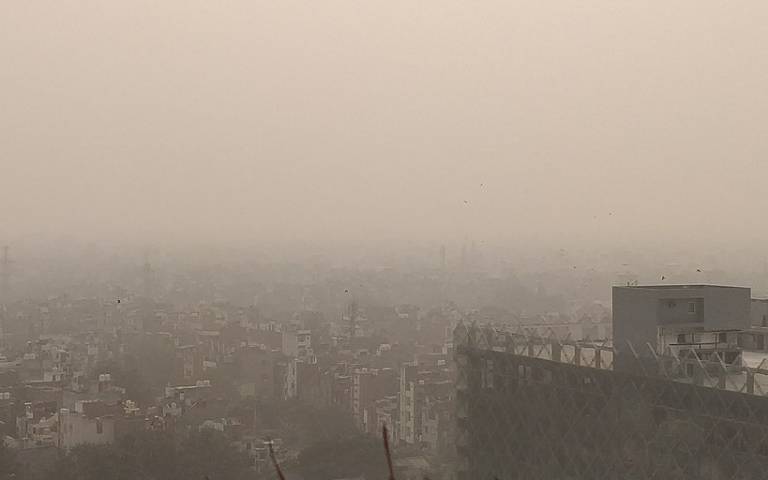Air pollution laws are falling short, reveals UN report
2 September 2021
A third of the world’s countries have no legally mandated outdoor (ambient) air quality standards, according to a UN report co-authored by a UCL academic.

The report – the first-ever assessment of air quality laws and regulations by the UN Environment Programme (UNEP) – found that, where such laws do exist, standards vary widely and are often less ambitious than World Health Organisation (WHO) guidelines. In addition, at least 31% of countries that do have the power to introduce such ambient air quality standards have yet to adopt them.
Air pollution has been identified by WHO as the single largest environmental health risk, with 92% of the world’s population living in places where air pollution levels exceed safe limits, disproportionately affecting women, children and elderly people in low-income countries. Recent studies suggest possible correlations between Covid-19 health outcomes and air pollution.
Co-author Professor Eloise Scotford (UCL Laws) said: “Governance systems for air quality really matter and this report shows they have often been neglected.
“When people think about air quality standards, they usually think about scientific standards that set maximum levels for different pollutants. However, to achieve clean air, we need not only ambitious standards but also effective and coordinated laws, which motivate governments to take responsibility and ensure the air we breathe is clean. I hope this report will be a step towards more robust and effective laws and governance in this area.”
The report, “Regulating Air Quality: The first global assessment of air pollution legislation”, was launched ahead of the International Day of Clean Air for blue skies on September 7, a day designated by the United Nations General Assembly. The report examines national air quality legislation in 194 States and the European Union. Exploring various dimensions of legal and institutional frameworks, it assesses their effectiveness in ensuring the attainment of air quality standards.
Inger Andersen, Executive Director of UNEP, said: “There will be no jab to prevent seven million premature deaths caused by air pollution each year, a number poised to grow by more than 50% by 2050. The air we breathe is a fundamental public good, and governments must do more to ensure it is clean and safe.”
WHO has presented guideline values for ambient air quality, but, as the report shows, there is no global alignment and common legal framework for applying them. In at least 34% of countries, ambient air quality is not yet legally protected. Even where legally adopted, standards are difficult to compare: 49% of the world’s countries define air pollution exclusively as an outdoor threat, geographic coverage of air quality standards varies, and over half of countries allow deviations from these standards.
Furthermore, institutional responsibility for attaining standards is weak globally – only 33% of countries impose obligations to meet legally mandated standards. Monitoring is critical to knowing if standards are being attained but is not legally required in at least 37% of countries. Finally, although air pollution knows no borders, only 31% of countries have legal mechanisms to address cross border air pollution.
The report calls on more countries to adopt robust air quality laws, which includes setting ambitious standards in law for both indoor and ambient air pollution, improving legal mechanisms for monitoring air quality, increasing transparency, significantly enhancing enforcement systems, and improving policy and regulatory coordination for national and transboundary air pollution alike.
Links
- Professor Eloise Scotford’s academic profile
- UCL Laws
- UN Environment Programme
- World Health Organisation (WHO) guidelines
- Sustainable Development Goals
Image
- ‘Delhi air pollution, 2019’, credit Prami.ap90 on Wikimedia Commons, CC BY 4.0
Media contact
Mark Greaves
T: +44 (0)7990 675947
E: m.greaves [at] ucl.ac.uk
 Close
Close

